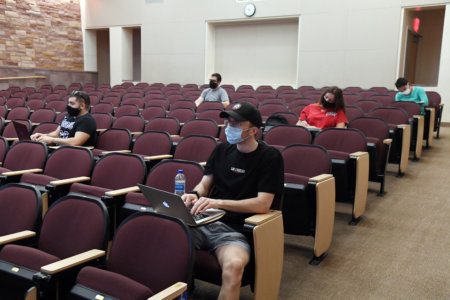
You look at the calendar and realise that several deadlines are fast approaching. It’s the end of the term, and you don’t want to botch your grades with late or no submissions. With no time left to complete your remaining papers, you begin toying with the idea of getting an assignment helper to solve your dilemma.
Believe it or not, this predicament happens in universities more often than you think. Academic life is demanding, requiring a large reserve of self-motivation and organisational skills if you want to stay on top of things. When the going gets rough, it’s natural to seek help and relieve your burden onto someone else.
Enter the assignment helper, who not only offers promises of delivering your papers on time, but scoring an A+ along the way. It’s a booming business these days, and you can outsource the gruelling hours of research and writing in just about every subject imaginable. It’s quick and easy, and many services confidently claim plagiarism-free results to ensure reliability.

Students may be unfamiliar with what constitutes cheating at the university level, and may thus be unaware of the grave consequences of committing an academic offence. Source: Philippe Lopez/AFP
Does hiring an assignment helper count as cheating?
At some point in our life as a student, we all know that secretly looking at answers stashed in hidden places during non-open book examinations constitutes outright cheating. Beyond the confines of the exam hall, the lines of academic integrity can be easily blurred when a student’s work is graded subjectively.
The debate over what constitutes cheating isn’t new in academia, and the discourse has gone more heated as online learning becomes commonplace. Deliberately falsifying information, misrepresenting data, obscuring facts by omission, and plagiarised work are all clear-cut examples of dishonesty that can result in suspension or expulsion from universities.
In principle, engaging in a third-party service incognito and claiming the result as your original work would fall under the banner of plagiarism. There’s an official term for it: “contract cheating”. While seemingly harmless if undetected, it undermines honesty and authenticity, which are core tenets of the learning process. Taking credit for someone else’s handiwork, even if there’s mutual agreement on both sides, is technically no different than presenting your classmate’s research as your own.
These services tend to be cheap and have a high turnaround rate, and some companies even offer model essays up for purchase. A survey of Australian university students found that as many as six percent out of 14,000 students surveyed admitted to “outsourcing behaviours”, while 15% of them had bought, sold, or traded notes.
“Academic misconduct can be a learning and cultural issue,” writes Peter Hurley, Policy Fellow at Mitchell Institute at Victoria University. Many students, particularly when they are new to higher education, are simply not aware [of] what constitutes academic misconduct.”

Being forthcoming with professors about your assignment difficulties can go a long way in getting flexibilities with deadlines. Source: Scott Olson/Getty Images/AFP
Alternatives to assignment helpers
Aside from familiarising yourself with university policies on cheating, doing your part as a student means cultivating honesty even when the easy way out is available. Instead of resorting to essay mills, consider these options:
Talk to your professors — Explain your situation as best as you can, and ask for an extension. Professors were once students too, and more often than not, they have your best interests at hand. Set a fair and realistic date to hand in your work. If you feel stuck about your tasks, don’t be afraid to ask for clarification on how to proceed.
Consult a writing advisor — Tap into the free services of your university’s writing centre. Resident writing coaches help you to break down the writing process and can offer you useful pointers on how to improve a draft. They can also work with you to navigate anxiety and negative feelings around writing, and devise practical steps for you to overcome them.
Consult your peers — Who better to help you out than a classmate who’s done well, especially those who excel under pressure at the last-minute? Ask how they approach, research, and execute a particular assignment. Sometimes your fear of failure overrides your own capability of producing a miracle from a last-ditch effort. You just need to learn how to do them effectively, which is better than handing in plagiarised work.










